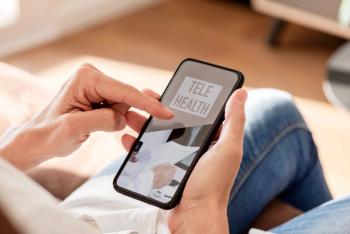
Specialty telehealth supports chronic disease management and boosts Medicare Advantage value
80% of older adults have at least one chronic disease, 77% have at least two, supporting the urgent need to increase telemedicine and digital monitoring adoption.
Since patients with chronic medical conditions are among the largest consumers of healthcare costs, telemedicine and telehealth solutions have emerged as potential cost-effective solutions to improve their management.
Approximately
Utilizing Telemedicine for Chronic Disease Management
An Association of American Medical Colleges (AAMC) report in 2020 estimated a physician shortage in the United States of
For example, a Milken Institute report indicated that the U.S. health care costs for chronic diseases such as heart disease, cancer, diabetes, and Alzheimer’s disease totaled $
Telemedicine and telehealth have been associated with improvements in patient’s
Furthermore, managing a patient’s chronic condition from a distance reduces the need for office visits and in-person consultations, thereby mitigating viral transmission. Healthcare for the elderly and patients with chronic illnesses is being transformed to a virtual, home-based enterprise: a recent study indicated that a majority of MA participants used telemedicine services during the COVID pandemic, with over
Telehealth and digital technologies are not only being used to help patients achieve long-term self-management of their chronic diseases, they can also facilitate collaboration among providers—an essential component in the management of patients with complicated chronic disease and comorbidities. This approach enhances symptom management and provides a channel to assess and improve patient compliance and adherence to prescribed regimens of care.
Rural Residents Increase Access to Specialized Care
With around
Monitor Patient Lifestyle Changes
As patients living with chronic conditions will benefit from lifestyle modifications, such as dietary changes, smoking cessation, and increased physical fitness, specialty telehealth consultations are critical to monitoring these changes. Digital devices, such as Bluetooth-enabled scales, blood pressure cuffs, and glucometers can monitor disease progression or regression. Physicians can also utilize mobile devices and live video and audio to quickly remind patients to take their medication, eat healthy, or find ways to stay active.
Reducing Hospital Admissions
Inpatient hospitalizations are among the most expensive component of managing patients
Specialty Telemedicine for Chronic Diseases: Post-COVID-19 Safety
Undoubtedly, there is perhaps no more compelling benefit of telemedicine for chronic disease management than patient and provider safety, which has gained such importance during the COVID-19 pandemic. Specialty telemedicine in particular has been hailed as an imperative for CDM since it provides high quality care while still maintaining appropriate distancing measures, necessary to prevent viral transmission.
This is particularly relevant for MA beneficiaries whose underlying comorbid medical conditions place them at high risk for severe COVID-19 sequelae, yet simultaneously also necessitate relatively frequent medical consultations.
Newsletter
Optimize your practice with the Physicians Practice newsletter, offering management pearls, leadership tips, and business strategies tailored for practice administrators and physicians of any specialty.






